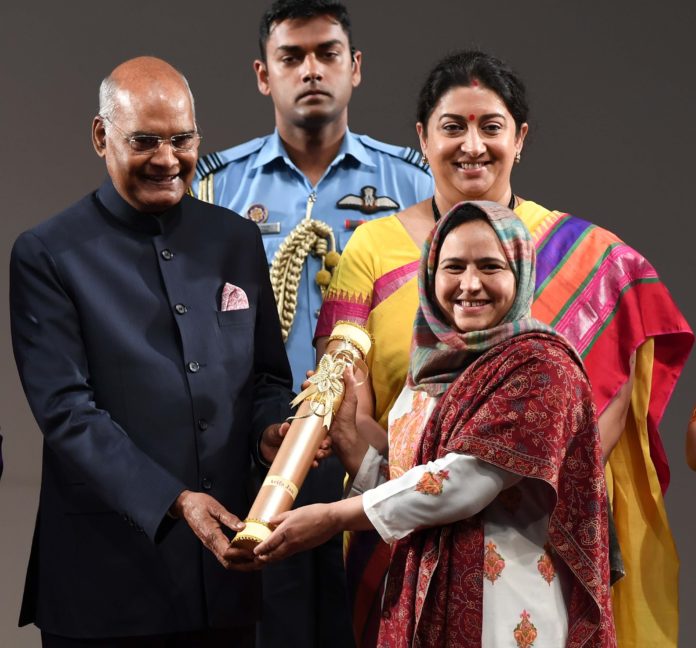Mubashir Bukhari
Srinagar (NVI): Arifa Jan from Kashmir, who was conferred with ‘Nari Shakti Puraskar’ by President Ram Nath Kovind in Delhi, is the founder of ‘Numdha’ Handicrafts and is responsible for reviving the lost art.
She has trained more than 100 women in Kashmir.
Numdha is a traditional Kashmiri carpet, made by rolling and press wool by the application of moisture. Untill some years, Kashmiri Numdhas were seen in every rooms. There was once a local as well as national demand and the handicraft had a good export market. The demand and export declined in the past more than a decade.
She has employed 25 Kashmiris and increased wages of her employees from Rs 175 to Rs 450. Despite financial constraints and criticized for being a female entrepreneur, she has actively promoted new designs of Numdhas.
After receiving the award on the occasion of International Women’s Day, she said, “With support from my father and husband, I have been able to fight the conservative society and reach to this point.”
Arifa Jan, braving all odds, accepted the challenge to revive the most famed handicraft Numdha, which over the years has lost its prominence in Kashmir.
After completing her bachelor’s degree in commerce from Kashmir University, Arifa’s friend who had set up a Craft Development Institute (CD) encouraged her to pursue a two-year, Craft Management and Entrepreneurial Leadership programme.
Due to financial problems, Arifa could not afford to pay her fee. But after seeing her talent and determination CDI aided a grant to her, which helped her to continue training.
During Arifa’s two-year training programme, she got an opportunity for specialised training in Kyrgyzstan.
At the end of the training course, Arifa submitted the project of 50 pieces of beautiful multi-colored traditional Numdhas which led her successful life.
Her new venture was not so easy. At the beginning she faced troubles to continue her business.
However, Arifa’s father wanted her to stop the business because as per him nobody in Kashmir would ever marry her. “Even, her relatives did not spare and continued criticising.”











